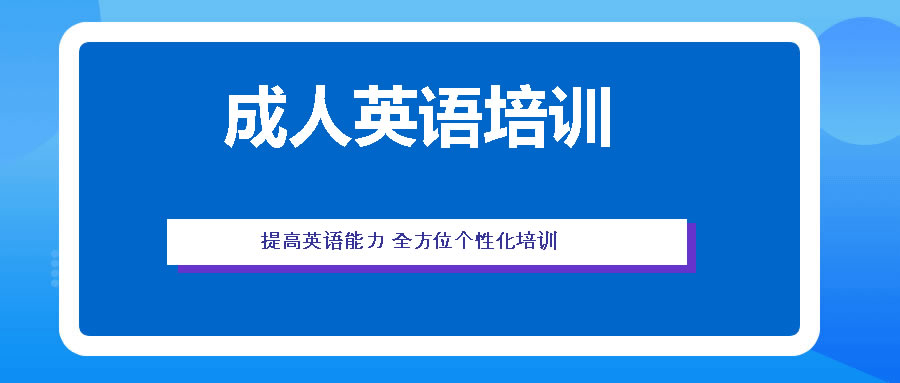一、熟悉语言组成的三个基本要素:语音、语法、词汇。
二、掌握四个基本技能:听、说、读、写。当然还有一个技能---翻译。但是只要熟练掌握了前面的四个技能,稍加训练,翻译水平自然而然就会提高。
下面来简单说说如何熟悉英语三大要素:语音、语法、词汇:
语音:
无论是自然界中的动物,还是人类,原始的沟通总是用声音作为媒介。对于人类而言,语音也是一步的,只是随着社会的发展进而才发明出文字。我相信当一个婴儿对着自己的母亲说出一声“妈”的时候,他/她不会知道“妈”这个词如何写!
实际上,世界上所有的语言都是先有发音才有文字的。发音是自然界的产物,文字是人为创造的书写系统。世界上的方言土语有千千万万种,有对应的书写系统的有几个?所以,发音在先是自然规律,我们只有遵循自然规律才能学好语言!由此可见,只有从发音学起,才是顺应语言发展的自然规律!所以,学任何语言,语音永远是一位的。
如何掌握语音?
很简单,买一本语音教材,从头学到尾(不要背,能理解即可)就可以了。关键是音标的发音。因为只有音标发音标准,单词才能读准。连单词都读不标准,口齿不清,是不可能读好句子的,更不可能说一口流畅的英语。
如果有条件,我建议好找一位发音标准的家教或者英语高手来纠正发音,因为就算你跟着标准的音频跟读,自己往往还是无法判别自己的发音是否标准清晰。或者参加语音矫正培训班。我坚信,值得参加的英语培训班肯定是语音培训班!
语法:
买一本比较全面的语法书,把它从头到尾看完。语法关键就是理解,不是背。也就是说,如果你能理解一个句子的意思,就不要管它什么语法。
要尽快丢掉语法书!
语法是用来帮助理解文章的。如果文章已经理解,又何必管它什么语法。当然,如果你是研究语法的或者因学习工作等需要的除外。实际上,当你看原版书或者英文影视的时候,你会发觉很多语言现象都很难用语法来解释的。
现在语法书也有分级,什么初中语法啦,高中语法啦,大学语法啦,语法大全啦等等,如果你基础不好,就循序渐进,把它们逐次都看完。
英语口语分享:
铺床吧。
Let's spread out the futon. *spread意为“铺开”。
Let's get the futon out. (把被子拿出来吧。)
我困了。
I'm sleepy.
I'm sleepy. (我困了。)
Why don't you take a nap? (你干嘛不睡午觉?)
I'm drowsy. *drowsy是表示困得睁不开眼。
作业做了吗?
Did you do your homework?
Did you finish your homework?
好好学习。
Study hard.
Study hard. (好好学习。)
I am. (好好学着呢。)
快点睡觉。
Hurry up and go to sleep.
游戏玩够了吧。
Enough with your video games.
Enough with your video games. (游戏玩够了吧。)
I can't quit now. (正好玩着呢。)
一定要刷牙噢。
Make sure you brush your teeth.
Make sure you brush your teeth. (一定要刷牙噢。)
I will. (一定刷。)
明天的东西都准备好了吗?
Are you ready for tomorrow?
Are you ready for tomorrow? (明天的东西都准备好了吗?)
No, not yet. (没有,还没准备好呢。)
我去洗个澡。
I'm going to take a bath.
I'm going to take a bath. (我去洗个澡。)
Make sure you wash up well. (好好洗洗啊。)
该睡觉了。
Time to go to sleep.
Time to go to sleep. (该睡觉了。)
Just a minute. (再等一下。)
电视还开着呢。
You left the TV on.
You left the TV on. (电视还开着呢。)
Sorry about that. (对不起,我忘了关。)
You forgot to turn the TV off. (你忘了关电视啦。)
别把你的东西都摊在这儿。
Don't leave your stuff here.
Don't leave your stuff here. (别把你的东西都摊在这儿。)
I won't. (知道了。)
把闹钟定在8点了。
I set the alarm clock for 8:00.
I set it for 8:00.
明天7点叫醒我。
Wake me up at seven tomorrow.
Wake me up at seven tomorrow. (明天7点叫醒我。)
Sure thing. (知道了。)
晚安。
Good night.
Good night. (晚安。)
Sweet dreams. (做个好梦。)
做个好梦。
Sweet dreams! *该句和Good night!一起用于就寝前。一般人均可使用,特别多用于父母对子女。
Sweet dreams! (做个好梦。)
Don't let the bedbugs bite. (晚安。) *bedbugs “臭虫”,直译是“别让臭虫咬了。”但现在没有这种意思,只是睡觉前常用的表达方式*一。
Have pleasant dreams.
●休息日
我真想睡个午觉。
I want to take a nap.
I want to take a nap. (我真想睡个午觉。)
But you just woke up. (你不是刚刚起来吗?)
I want to take a catnap. *catnap “打盹”、“小睡一下儿”。
I'd like to lie down for a while. (我想躺会儿。)
我去躺一会儿。
I'm going to lie down. *用于稍感疲劳的时候。
I'm going to take a rest. (我休息一会儿。)
你在装睡啊!
You're pretending to be asleep.
You're just pretending that you're asleep.
You're not really asleep. (你其实没睡吧!)
I know you're still awake. (我知道你还没睡。)
你睡着了吗?
Were you sleeping?
Were you asleep?
没有,还没睡呢。
No, I was awake.
你能给孩子换块尿布吗?
Will you change the baby's diaper? *diaper“尿布”。
Will you change the baby's diaper? (你能给孩子换块尿布吗?)
Again? (又要换呀?)
Will you change the baby's diaper? (你能给孩子换块尿布吗?)
I just changed it ten minutes ago. (10分钟前我刚换过的。)
想尿尿吗?
Do you need to pee? *主要对小孩子用。
该尿尿了。
It's time to go wee-wee. *主要对小孩子用。
It's time to go pee-pee. *对儿童用wee和pee,对婴幼儿用重叠wee-wee和pee-pee的形式表示“小便”。
蒙一儿。
Peekaboo! *孩子们在玩藏猫游戏时常用。大人有时也半带玩乐地使用。
Peekaboo! (蒙一儿。)
Do it again. (再来一次。)
胳肢胳肢。
Kuchi-kuchi-koo. *胳肢婴儿时用。大人有时开玩笑时也用。
我们来投球吧。
Let's play catch.
Let's play catch. (我们来投球吧。)
Great! (好呀!)
Let's play ball.
漏水了。
The water is leaking.
The pipe is leaking. (水管漏了。)
全是灰呀。
It's so dusty. *dusty“到处都是灰尘”、“沾满尘土”。
It's so dusty. (都是灰啊!)
I didn't notice. (我倒没注意。)
It needs to be dusted. (得扫扫了。)
这间屋子通风真差。
It's stuffy in this room. *stuffy 房间等地方“通风不好”、“憋闷得慌”。
The air is thick. (这里真闷。)
I can't breathe in this room. (这屋让人喘气来。)
The air is dense. (空气混浊。)
这个房间很通风。
It's drafty in this room. *drafty “有穿堂风的”。
你能去喂喂狗吗?
Will you feed the dog? *feed “喂食”。
Please give the dog some food.
你去遛遛狗吧?
Will you take the dog for a walk?
帮我照看一下弟弟和妹妹啊。
Take care of my brother and sister.
Take care of my brother and sister. (帮我照看一下弟弟和妹妹。)
You bet. (放心吧。)
请(给植物)浇点水。
Please water the plants. *water在这里是动词“浇水,洒水”。
Can I help? (要我帮忙吗?)
Yes, please water the plants. (好吧,请帮我给花浇浇水。)
啊!怎么这么乱呀!
What a mess! *母亲看到孩子们的房间时常说的一句话。
Look at the mess!
What a pigsty! * 含有脏得像个猪窝的语气。
帮帮我吧。
Help me.
Help me. (帮帮我吧。)
What do you want me to do? (我能帮你做什么呢?)
把你的屋子收拾收拾。
Clean up your room.
Clean up your room. (把你的屋子收拾收拾。)
But I'm watching TV now. (可我正在看电视呢。)
Straighten up your room.
Tidy up the room.
帮我打扫打扫卫生。
Help me clean up the house.
洗涤灵用完了。
We're out of dish detergent. *“洗衣粉”是laundry detergent。
We're out of dish detergent. (洗涤灵用完啦。)
I'll go get more. (那我去买一瓶。)
你能把衣服晾上吗?
Would you put up the clothes to dry?
*put up是“向上挂”的意思,但在这里表示“晾衣服”。
你能帮我把衣服叠起来吗?
Will you help me fold up the clothes? *fold up“叠整齐”。
把地扫扫。
Please sweep the floor. *sweep“扫”、“打扫”。
把厨房的池子洗干净。
Please scrub the sink. *“洗”一般用动词wash和clean来表示,但是“使劲搓洗”这一动作,用scrub表示合适。
我得用吸尘器吸吸我房间了。
I have to vacuum my room. *vacuum“用吸尘器打扫”。
掸掸柜子上的土。
Please dust the shelves. *dust“掸土”。
Please wipe the shelves. (请擦一擦柜子。)
请拖拖地。
Please mop the floor.
你能把那件衬衫熨熨吗?
Will you iron the shirt?
我的裙子得熨了。
I have to iron my skirt. *iron不仅是名词,它还可以用作动词“熨”。
我们去超市买东西吧。
Let's go grocery shopping.
We need more milk. (还得再买点牛奶。)
Let's go grocery shopping. (那我们去超市买吧。)
公园里人挤人。
The park was crowded.
The park was filled with people.
今晚能帮我照看一下孩子吗?
Can you baby-sit tonight? *baby-sit“父母不在时帮忙照顾孩子”。
Can you baby-sit tonight? (今晚能帮我照看一下孩子吗?)
Sure I can. (当然可以。)
●送礼物
这是送给你的。
This is for you.
This is for you. (这是送给你的。)
That's very nice of you. (太谢谢你啦。)
Here's something for you.
I got this for you.
这是你的那份。
This is your share. *share“(一个一个分开的)分成的份儿,分开”。
This is your portion.
This is your part.
This portion is for you.
过生日想要什么礼物?
What do you want for your birthday?
What do you want for your birthday? (过生日想要什么礼物?)
I want gloves. (我想要副手套。)
噢,来喽!
Ta-dah! *把礼物等送到别人面前时的一种表达方式。
Here you are! (请收下。)
Here you have it!
●生活习惯
我经常下班以后运动。
I usually work out after work. *work out“训练,运动”。
I usually go to the gym after work.
I usually exercise after work.
我开始慢跑锻炼。
I've started jogging.
I've started jogging. (我开始慢跑锻炼。)
Since when? (什么时候开始的?)
我戒烟了。
I quit smoking. *quit“辞职,改变习惯”。
No, thanks. I quit smoking. (不,谢谢,我已经戒了。)
Good for you. (你真伟大。)
I stopped smoking.
I don't smoke anymore.
I've be**e a non-smoker.
I no longer smoke.
你常做梦吗?
Do you dream often?
Do you often have dreams?
Do you dream a lot?
近我总是丢三落四的。
I've been forgetful lately.
I've been forgetful these days.
●理财
什么时候到期?
When is this due? *due“*须支付”、“支付期限到了”。日常生活中常使用带有due的表达方式。
Here's the phone bill. (这是电话费通知单。)
When is this due? (交费截止到什么时候?)
When is the rent due? (房租截止到几号?)
When is the paper due? (交论文的时间截止到几号?)
When is the last day I can pay for this?
How long is the pay period?
When do I have to pay this by?
When does this have to be finished by?
交费日期截止到30号。
It's due on the thirtieth.
能帮我换一下零钱吗?
Could you give me change? * change 也有“零钱”的意思。
Can you change this?
Could I have change?
能帮我换开100日元吗?
Do you have change for one hundred yen? *change 除了“交换,兑换”的意思之外,还有“零钱,破开的钱”。
Do you have change for one hundred yen? (能帮我换开100日元吗?)
Sure. (可以。)
Can you change this? (能帮我破一下吗?)
Can you break a one-hundred-yen bill? (能帮我破开100日元吗?)
Can you break a hundred?
I'd like to change a hundred-yen note. (我想破开100日元。)
Here's one hundred yen. Could I have change? (这是100日元,能帮我破开吗?)
我要存5000日元(在我的账户上。)
I need to deposit five thousand yen (in my savings account). *deposit“在银行存钱”。
savings account “账户,户头”。
I need to put ¥5,000 into the bank.
我要取5000日元(从我的账户上)。
I need to withdraw ¥5,000 (from my savings account). *withdraw“(从存款中)取出,拿出”。
I need to take out ¥5,000 from the bank.
我是自己掏的腰包。
I paid out of my own pocket. 直译是“从自己的口袋里拿出钱来支付。”是“自己掏腰包”的固定说法。
我没带现金。
I'm out of cash.
我现在没有多少现金。
I don't have much money on me now.
May I borrow some money? (能借点儿钱吗?)
I don't have much money on me now. (我现在没有多少现金。)
I didn't bring very much money with me. (我身上没带多少现金。)
I'm a little short of money now. (我现在钱不够用。)
身无分文。
I'm broke.
May I borrow ten dollars? (能借给我10美元吗?)
Sorry, I'm broke. (对不起,我现在身无分文。)
I have no money.
I'm out of money.
I'm flat broke. * 强调的说法。
现在我有很多现金。
I have a lot of money on me now.
I brought a lot of money with me. (我带来了许多现金。)
I'm rich now. (我现在很有钱。)
I'm rolling in it.
I have lots of cash on me.
我可没有时间闲呆着。
I can't afford to be lazy. *afford“有钱,有时间,有力量”、“有富余”。
I can't afford to be idle.
I don't have time to be lazy.
多浪费呀!
What a waste! *waste “浪费,荒废,徒劳”。
How wasteful!
他因为还不上债而躲了起来。
He didn't pay the debt and disappeared. *debt“借债,负债,有欠债的状态”。
He skipped town without paying his debt.
更多培训课程,学习资讯,课程优惠等学校信息,请进入 武汉洪山区英语培训武汉洪山区英语口语培训武汉洪山区商务英语培训 网站详细了解,免费咨询电话:400-998-6158












